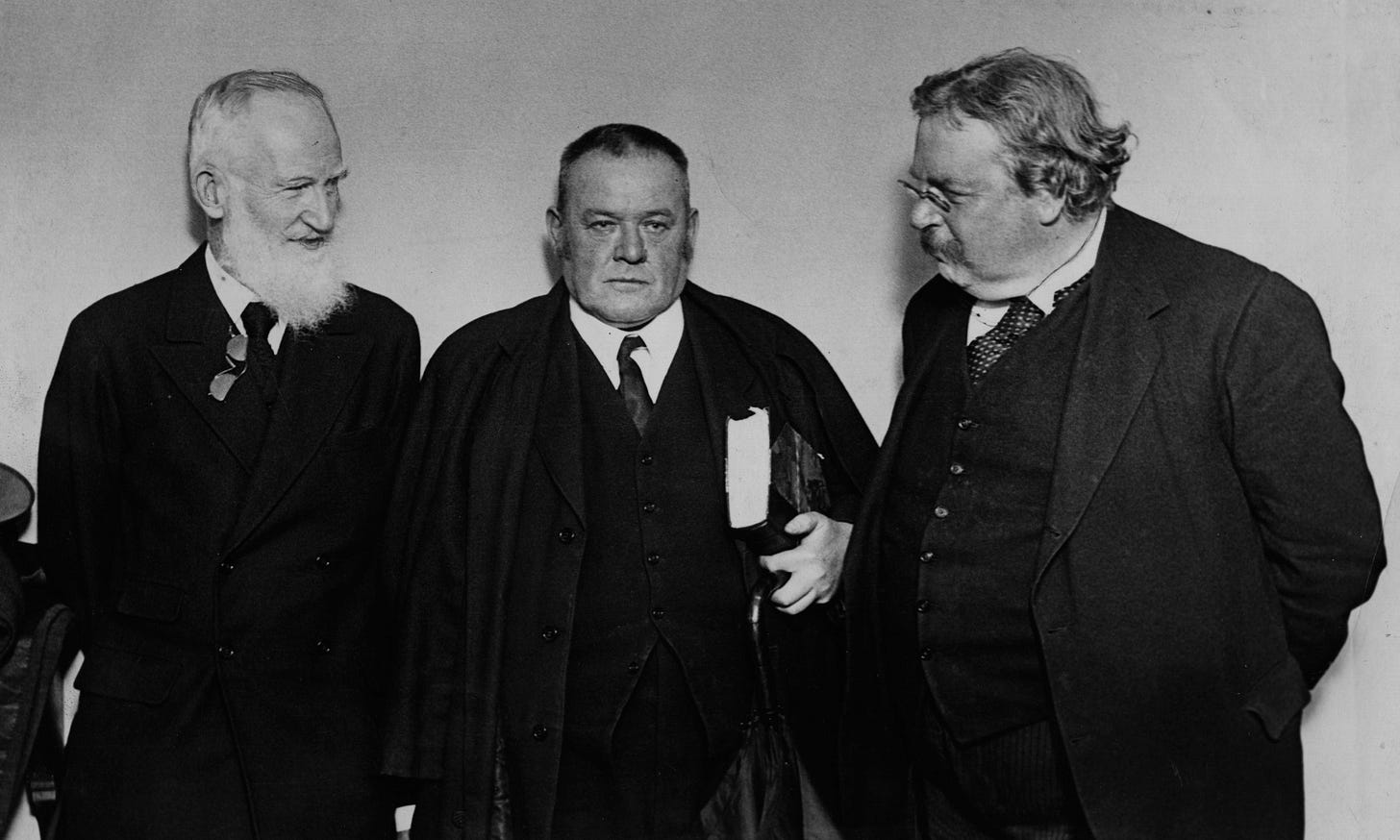
In 1924, the hottest ticket in London wasn’t Enrico Caruso belting out O Sole Mio, or Julia Marlowe bringing down the house in Romeo and Juliet. It was a seat at the latest debate between George Bernard Shaw and G.K. Chesterton.
At the time, it was clear that Great Britain’s greatness was waning. The nation that gave us the Magna Carta, the Beatles, and Toad in the Hole, reached its peak in 1919, when it ruled a quarter of the planet, and “the sun never set on the British Empire.”
By 1922, Ireland and Egypt were both independent.
The slope was slippery.
It didn’t help that British politics were in turmoil. On October 9, 1924, Parliament was dissolved yet again, to herald the third national election in less than two years.
Despite the toxicity in the House of Commons, the House of Lords, the towns and shires—Shaw and Chesterton role-modeled respectful dialogue, civility and grace. They couldn’t have been more different. The rambunctious Chesterton, a huge man and devout Christian, loved nothing better than spending all day in his favorite tavern, swilling ale and eating roast beef whilst writing with incomparable wit. The pencil-thin Shaw was a fervent atheist and teetotaling vegetarian who preferred being left alone to write one of his famous plays or many other works. Shaw lambasted Chesterton as a Papist buffoon, while Chesterton said of Shaw “he is something of a pagan, and like many other pagans, he is a very fine man.”
As Zach Kincaid asks in “A Progressive Friendship: Shaw & Chesterton”—“How [did] these two even talk?,” given the fact that “they [were] nearly in complete opposition with each other.” But Kincaid answers his own question: “They [were] both optimists, both masters of paradox, both under the premise the world is moral, both willing to challenge and be challenged.”
Recently, in my hometown of Washington, D.C., at The National Cathedral, my very good, extremely wise, and stubbornly optimistic friend David McAllister-Wilson, President of Wesley Theological Seminary, helped usher in a similar sort of debate…between the political “Left” and “Right.” David hopes this first debate will prompt other civil debates to pop up all over the country…as we head towards our national election, this November.
Thank you, David!


